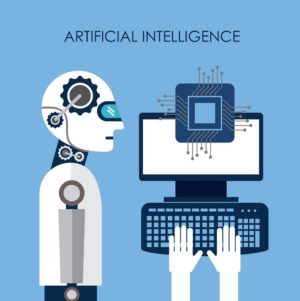Given the progression and usage of artificial intelligence (“AI”) in the employment field, states and cities across the United States have incorporated legislative efforts to ensure that AI systems protect individuals’ accessibility to equal opportunity in the workforce.
One instance of these efforts is exemplified in New York’s Automated Employment Decision Tools (AEDT) law. As of September 2022, the New York City Department of Consumer and Worker Protection proposed the AEDT law that states that any employment tool which “replaces” or “substantially assists” human decision-making is subject to the AEDT regulations. Generally, the law requires employers and employment agencies across New York City (the City) to comply with certain requirements before using an AEDT in their hiring and promotional process.
One requirement under the AEDT law includes completing an independent bias audit of the tool by including calculations of selection rates of candidates. Selection rates are the rates at which individuals are chosen to continue in the hiring process. Other requirements under AEDT include providing a publicly available summary about the audit and distribution of the tool, giving notice to potential candidates and employees that an AI tool will be used in their employment process, and making information about the employer’s data retention policy publicly-available.
Originally, the AEDT law was to be effective January 1, 2023; however, as objections and comments regarding the scope of AEDT arose, the law was postponed until April 15, 2023. For instance, one objection is that the City’s AEDT law does not explicitly address whether the AEDT applies in circumstances where employers located outside the City hiring New York residents ought to oblige with the regulations. Also, AEDT does not address compliance with the regulations if the employer is within the City hiring applications that are not New Yorkers. As the rulemaking process continues and public hearings begin, the AEDT’s scope can be crystallized so that its breadth is clear and transparent among both employers and employees. In addition, other states including California, Illinois, and Maryland have drafted and implemented similar legislation regarding AI performance regulations in the employment process.

